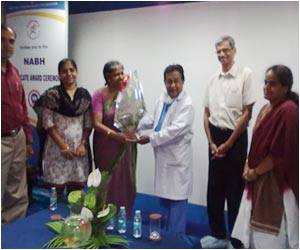Heart diseases take almost 18 million deaths each year, according to the World Health Organization (WHO) (1✔ ✔Trusted Source
Cardiovascular diseases
Go to source). Heart attacks and strokes account for 85% of the rising number of deaths caused by heart diseases. Heart-related disorders account for over 40% of premature fatalities, or deaths in those under the age of 70.
Heart disease symptoms can be deceptive and mirror other issues, delaying diagnosis and treatment. Given the seriousness of the condition, it is critical to understand the disease’s symptoms so that one may immediately detect its onset and seek medical attention. Read the article to learn more about the early symptoms of a heart attack (some of which appear months before the cardiac event).
Understanding the Difference: Heart Attack Chest Pain vs. Dyspepsia
In many cardiac instances, people mistake chest pain for dyspepsia. Because there is less awareness of it, chest pain caused by heart attacks is difficult to notice. People begin indigestion treatments and, in the meantime, postpone medical care (2✔ ✔Trusted Source
Chest pain–indigestion or impending heart attack?
Go to source
) . A heart attack’s chest pain feels like a stabbing ache in the chest.
Is Shoulder Pain a Symptom of Heart Attack?
Almost everyone suffers shoulder pain, and a sudden discomfort caused by a heart attack is easy to overlook. Individual mobility has been hampered by sedentary lifestyles. People have a tough time distinguishing between discomfort in the shoulders caused by long sitting hours and pain caused by a heart attack.
Epigastric Pain: Heart Attack or Gastric Reflux
The epigastric region is a common site of heart attack discomfort. It usually feels like a burning sensation in the core of the stomach, and many individuals mistake it for gastric or acidic reflux.
Silent Symptoms of Heart Attack
We frequently related dizziness or fainting with great physical weakness. However, few people realize that fainting or being unconscious is one of the silent symptoms of a heart attack. Nausea and vomiting are common side effects (3✔ ✔Trusted Source
Silent Myocardial Ischemia
Go to source
) .
Night Sweats: An Often Overlooked Symptom of Heart Attacks
Sweating at night is particularly common in patients who have had a heart attack. It is a pretty common symptom among women. During a heart attack, the body exerts additional effort to pump blood, resulting in sweating.
While it is impossible to tell whether it is a heart attack or something else based on the form of the pain, these symptoms should never be ignored and should always be treated as a medical emergency. Call someone for assistance or an ambulance. Do not drive yourself to the hospital because this could exacerbate your unsafe condition.
Advertisement
References :
- Cardiovascular diseases – (https://www.who.int/health-topics/cardiovascular-diseases#tab=tab_1)
- Chest pain–indigestion or impending heart attack? – (https://pubmed.ncbi.nlm.nih.gov/6739390/)
- Silent Myocardial Ischemia – (https://www.ncbi.nlm.nih.gov/books/NBK536915/)
Source: Medindia



